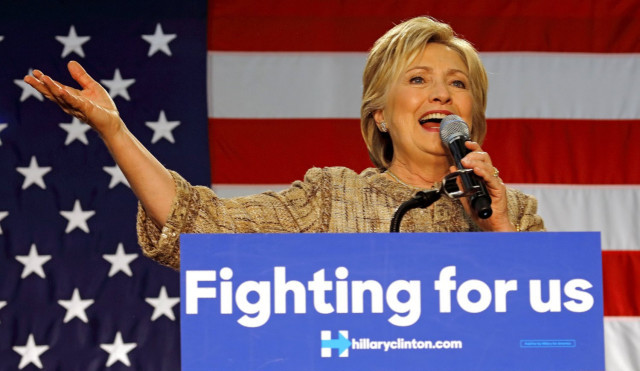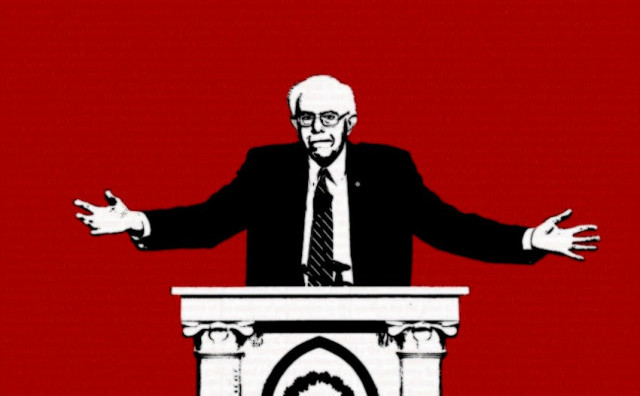Not a Single U.S. State Is Requiring Kids to Get Vaccinated to Attend Public School. Why?

Economics may offer a clue as to why not one state is mandating vaccination to attend school in the 2022-2023 school year, even though many government officials support coercive vaccination policies.
September has arrived and many children are back in public schools (though fewer than previous years).
At a recent event, one parent joked to me we’re now officially in “vaccine season.” The comment made me laugh, but there’s at least a kernel of truth to it. It’s not unusual for states to require that children receive an array of vaccinations—from polio, diphtheria, and chickenpox to measles, mumps, and meningitis—to be enrolled in a public school system.
One vaccine that parents will not find on any state’s required list in 2022 are the Covid-19 shots, which have been a source of great debate in the US and other countries.
While a few US cities continue to push vaccine mandates to attend, Pew Charitable Trusts pointed out earlier this year that states have been surprisingly wary of mandating Covid shots for children.
“[Only] two states—California and Louisiana—have added COVID-19 vaccines to the list of immunizations mandated for schoolchildren,” Michael Ollove pointed out in January. “Both requirements would be enforced next school year, and then only if the vaccines receive full authorization by the U.S. Food and Drug Administration.”
Things have changed since then.
In May, Louisiana Gov. John Bel Edwards announced the Louisiana Department of Health would not require children attending the state’s daycares or K-12 schools to provide proof of vaccination. California, which in October 2021 became the first state to announce Covid vaccine requirements for school, announced in April that it would not require vaccination, noting the vaccines had not at that time been approved by the FDA for all school-age children. (They are now.)
The fact that not a single US state is requiring students to be vaccinated against Covid to attend K-12 school is probably a bit surprising to readers. (It was to this author.)
I’d like to think that policymakers and politicians finally woke up to the fact that vaccine mandates are immoral, inhumane, and a clear violation of bodily integrity. But that seems unlikely considering that many vaccine mandates remain in place, particularly at the federal and municipal levels.
It’s also possible that lawmakers have realized vaccinated individuals can still get sick and spread the virus, and therefore concluded vaccinations are a matter of personal health, not public health. Yet once again this theory is undermined by the presence of other vaccine mandates that remain in place. Some may contend that we’ve simply beaten the virus and mandates are no longer necessary, but official statistics show Covid deaths and cases remain stubbornly high.
So what’s the answer?
What’s most likely is that political considerations are at play. Yet this thesis too, at first blush, appears to be undermined by the reality that polls show Americans support Covid vaccine mandates in schools.
Some basic economics, however, can help us see that the politics are more complicated than that.
‘Politics Without Romance’
Public Choice Theory is a field of economics pioneered by the Nobel Prize-winning economist James M. Buchanan and economist Gordon Tullock. It rests on a simple assumption: politicians and bureaucrats make decisions primarily based on self-interest and incentives just like everyone else, not out of an altruistic goal of serving “the public good.” (This is why public choice economists have dubbed it “politics without romance.”)
I’ve previously pointed out that politicians were incentivized during the pandemic to embrace Covid restrictions even if they didn’t work because of the political climate in 2020. The absence of government regulations was viewed as actual violence by some public health experts, and those who didn’t embrace strict interventions were accused of genocide.
Moreover, the costs of these regulations tended to be dispersed, delayed, and hidden from view. Depression, drug overdoses, lost learning, and speech impediments were among the consequences of NPIs (Non-Pharmaceutical Interventions) imposed by governments. But the results of these policies were relatively “unseen” (to use a term from the 19th century economist Frederic Bastiat), at least compared to Covid deaths, which public health officials, the media, and even ordinary citizens tracked obsessively.
The costs of NPIs were quite serious, but they were quite low politically for the reasons stated above. The political costs of keeping a state open were much higher. No politician wants to explain why Mrs. Jackson, the 60-year-old math teacher, died from Covid while schools in your state remained open. (It would be just as tragic if Mrs. Jackson had died at home when schools were closed, but at least no politician would be blamed for her death in this case.)
In other words, the incentive structure early in the pandemic encouraged interventions, even if those interventions were ineffective and ultimately ended up doing more harm than good.
A Different Incentive?
The incentive structure for vaccines is very different, particularly for young people.
Children can and do die from Covid, of course, but their risk is extremely low compared to other age groups. Even more important, perhaps, is that the costs of mandatory vaccination are not delayed, dispersed, or hidden from view. They are immediate, concentrated, and highly visible.
The sad reality is that vaccine injuries, though rare, do occur, as the CDC notes. And when they occur, they are the opposite of “unseen,” which means the political repercussions have the potential to be swift—and severe.
After all, when a young person dies after taking a vaccine designed to protect him, it’s a tragedy. When a young person dies of myocarditis after taking a vaccine he was forced to take to attend school, it’s a tragic event and a political disaster with a wide radius, even if some studies show the risk of myocarditis is greater after Covid infection than after Covid vaccination.
The Imperative of Choice
All of this analysis is dark and a bit troubling, of course. Now you see why they call public choice theory “politics without romance.”
But it might help explain why even state leaders comfortable with mandatory vaccination and vaccine passports have been reluctant to compel children to get the shot, even if they truly believe it could save lives.
Whether mandatory vaccination would have done more harm than good is a question we’ll never know, though it’s a debate that will likely continue for years to come. But because vaccines have the power to both save lives and claim lives, the decision to accept or refuse them can only morally be made by one person: the individual (or parents, if the decision concerns a child).
So at least state leaders are getting it right this time, even if they are doing so for the wrong reasons.
AUTHOR
Jon Miltimore
Jonathan Miltimore is the Managing Editor of FEE.org. His writing/reporting has been the subject of articles in TIME magazine, The Wall Street Journal, CNN, Forbes, Fox News, and the Star Tribune. Bylines: Newsweek, The Washington Times, MSN.com, The Washington Examiner, The Daily Caller, The Federalist, the Epoch Times.
EDITORS NOTE: This FEE column is republished with permission. ©All rights reserved.




